As we move forward into the 21st century, the interplay between various sectors is undeniable. Health, technology, finance, and travel are all pivotal elements that define how we live, work, and play. These industries are not isolated; rather, they are increasingly interconnected, shaping our experiences and opportunities. Here, we examine the relationship between these fields and their impact on daily life, offering insights into how they are revolutionizing industries and influencing global trends.
Health and Technology: Revolutionizing the Healthcare Sector
Health and wellness are fundamental concerns for individuals worldwide. Advances in technology have drastically transformed the way we approach health management. From fitness trackers to telemedicine, the intersection of health and technology has opened up new possibilities for both patients and healthcare providers. One of the most notable advancements in this area is the rise of smartwatches that track a person’s heart rate, sleep patterns, steps, and even stress levels.
Telemedicine has also played a significant role in making healthcare more accessible. Through video consultations and remote monitoring, patients can now consult doctors without leaving their homes. This has been particularly beneficial in rural areas where medical facilities may be scarce. Additionally, machine learning algorithms have enhanced diagnostic accuracy, helping doctors detect diseases at earlier stages. These innovations have not only made healthcare more efficient but also improved outcomes, particularly in chronic disease management and prevention.
The future of healthcare will likely see further integration of predictive algorithms in personalized medicine. Artificial intelligence to analyze vast amounts of data from various sources can help create individualized treatment plans, optimizing care and reducing errors.
Technology and Finance: Fintech is Changing the Financial Landscape
The technology sector has transformed almost every aspect of our daily lives, and finance is no exception. The emergence of financial technology has revolutionized how people manage their money, invest, and even bank. With the rise of mobile applications and online platforms, people can now access their financial services anytime and anywhere.
Digital currencies are also at the forefront of financial innovation. These digital currencies, based on blockchain technology, have introduced decentralized systems of finance, enabling transactions without the need for intermediaries like banks. Blockchain-based currencies are gaining traction among investors, offering opportunities for high returns, although they also carry risks due to their volatility.
Furthermore, robo-advisors are making it easier for individuals to invest in diverse portfolios without requiring a financial advisor. These platforms use algorithms to assess risk tolerance and recommend investments, making wealth management more accessible to a broader audience.
In addition to these advancements, contactless payments like Apple Pay, Google Pay, and PayPal have streamlined the way we handle transactions. These systems provide convenience and security, making physical wallets almost obsolete in some regions.
The integration of AI in financial services also extends to fraud detection. AI systems can analyze transaction data in real time, identifying patterns and flagging unusual activities that could indicate fraudulent behavior.
Finance and Travel: How Financial Trends are Shaping the Travel Industry
Global travel is one of the largest sectors worldwide, and like others, it has seen a dramatic transformation due to technological advancements. Financial strategies have evolved, making it easier for people to explore the world. The emergence of online booking platforms and travel apps has simplified the process of planning vacations. These platforms also offer various payment options, including installment plans, making travel more affordable for a wider range of people.
Financial technology has been instrumental in streamlining the booking process and enhancing customer experiences. Digital wallets, for example, allow travelers to store multiple currencies and avoid foreign exchange fees. Mobile applications like Skyscanner and Booking.com have made it easier to compare prices, track flight deals, and find accommodations that fit any budget.
Additionally, travel insurance options have become more accessible through digital platforms, with companies offering tailored plans for everything from flight cancellations to medical emergencies. The ability to book insurance coverage with a few taps on a smartphone has provided travelers with more peace of mind, knowing that their trips are protected.
Another significant trend is the rise of home-sharing services like Airbnb, which has changed the way people book places to stay. These services often offer a more personalized and affordable alternative to traditional hotels, further enhancing the travel experience.
Moreover, sustainable travel has become a growing concern for many tourists, leading to the rise of eco-friendly travel solutions. Travelers are increasingly seeking ways to reduce their carbon footprint, and tech companies are responding by offering options for green accommodations, carbon-offset programs, and low-emission transportation.
Travel and Health: Ensuring Safe Journeys in a Post-Pandemic World
Health and safety have always been essential aspects of travel, but the COVID-19 pandemic has amplified their importance. Travelers are now more conscious of cleanliness when flying or staying in hotels, and the travel industry has adapted by implementing enhanced hygiene protocols. From mandatory mask-wearing to touchless check-ins, the health sector has become an integral part of the travel experience.
Vaccination and health certifications are now required for entry into many countries, leading to the rise of digital health passports. These electronic records allow travelers to easily show proof of vaccination or negative test results, enabling smoother border crossings and safer travel experiences.
slot demo pg continues to play a significant role in this process. Mobile applications that provide up-to-date information about travel restrictions and health guidelines have made it easier for travelers to stay informed about the ever-changing landscape of global health policies.
Conclusion: The Future of Health, Technology, Finance, and Travel
In conclusion, the synergy between health, technology, finance, and travel is reshaping industries across the globe. The advancements in each of these sectors are improving the quality of life for individuals, providing more accessible, efficient, and enjoyable ways to live, work, and travel. Whether through innovative healthcare solutions, digital financial platforms, or seamless travel experiences, technology is paving the way for a future that is more connected and convenient.
As these industries continue to evolve, we can expect even more groundbreaking developments. In the coming years, the collaboration between health, technology, finance, and travel will undoubtedly continue to bring about new opportunities and challenges, driving us toward a more dynamic and integrated world.
The Intersection of Health, Technology, Finance, and Travel: A Comprehensive Overview
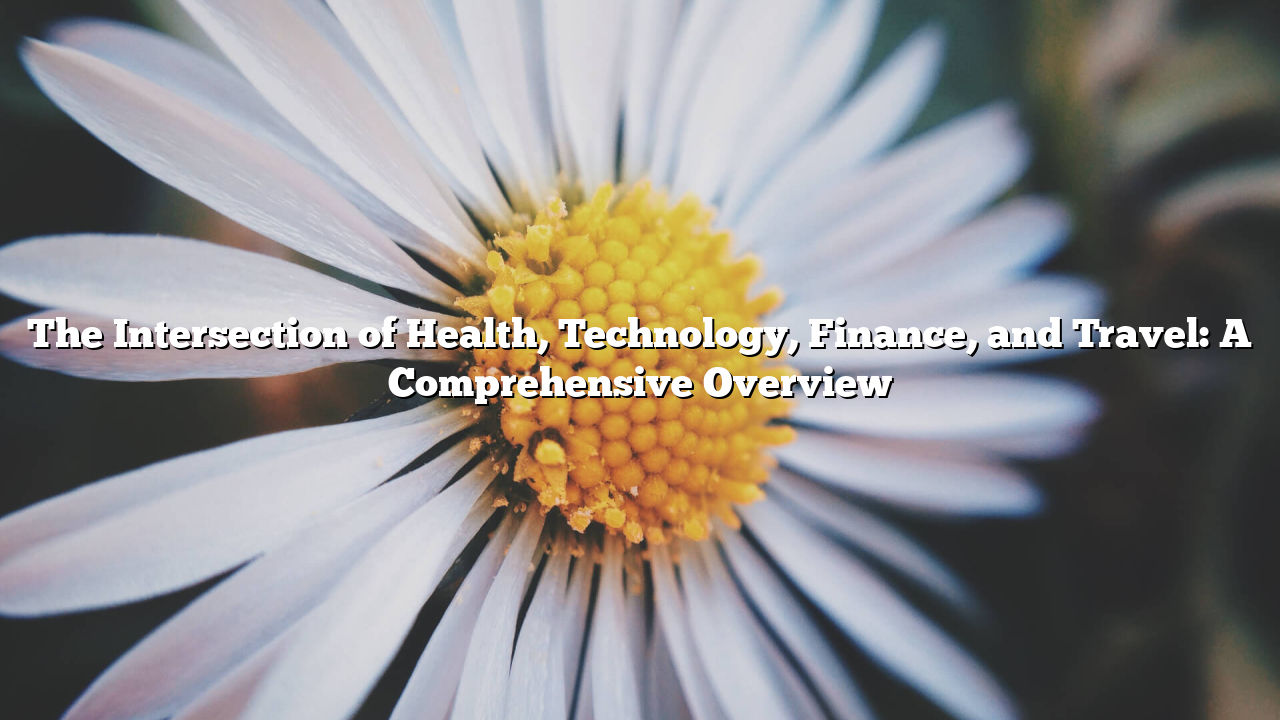
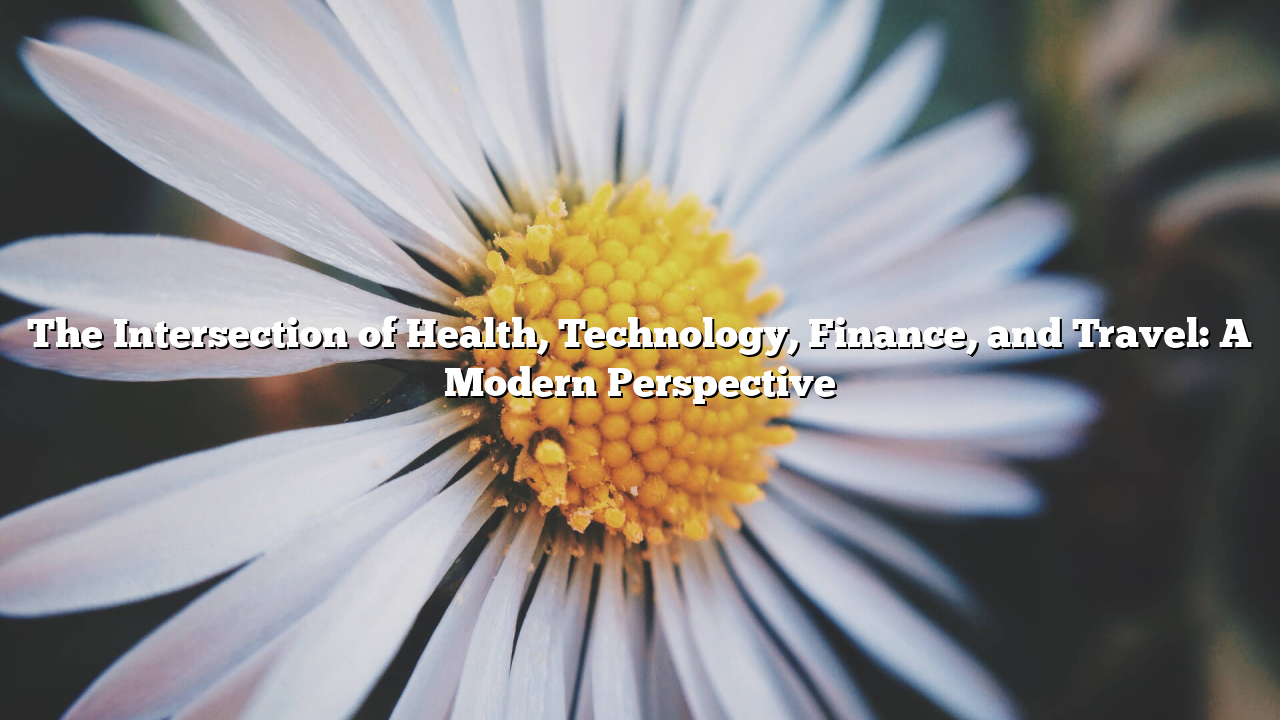



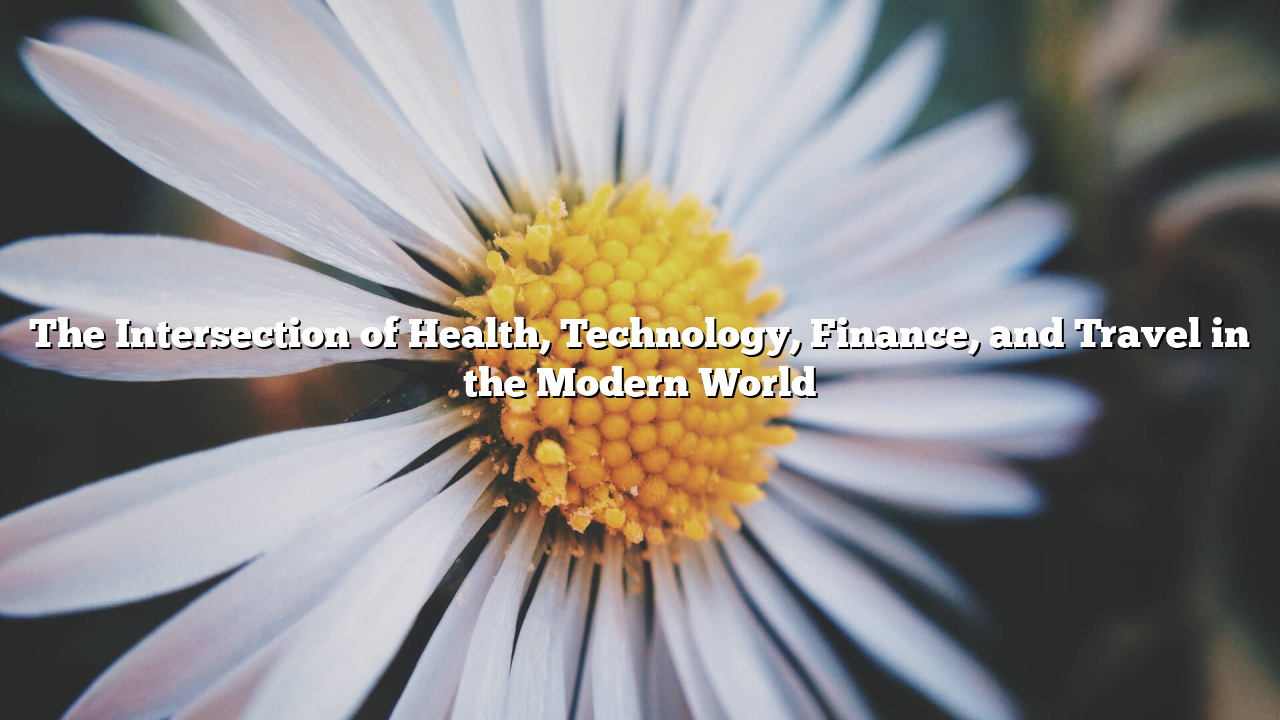
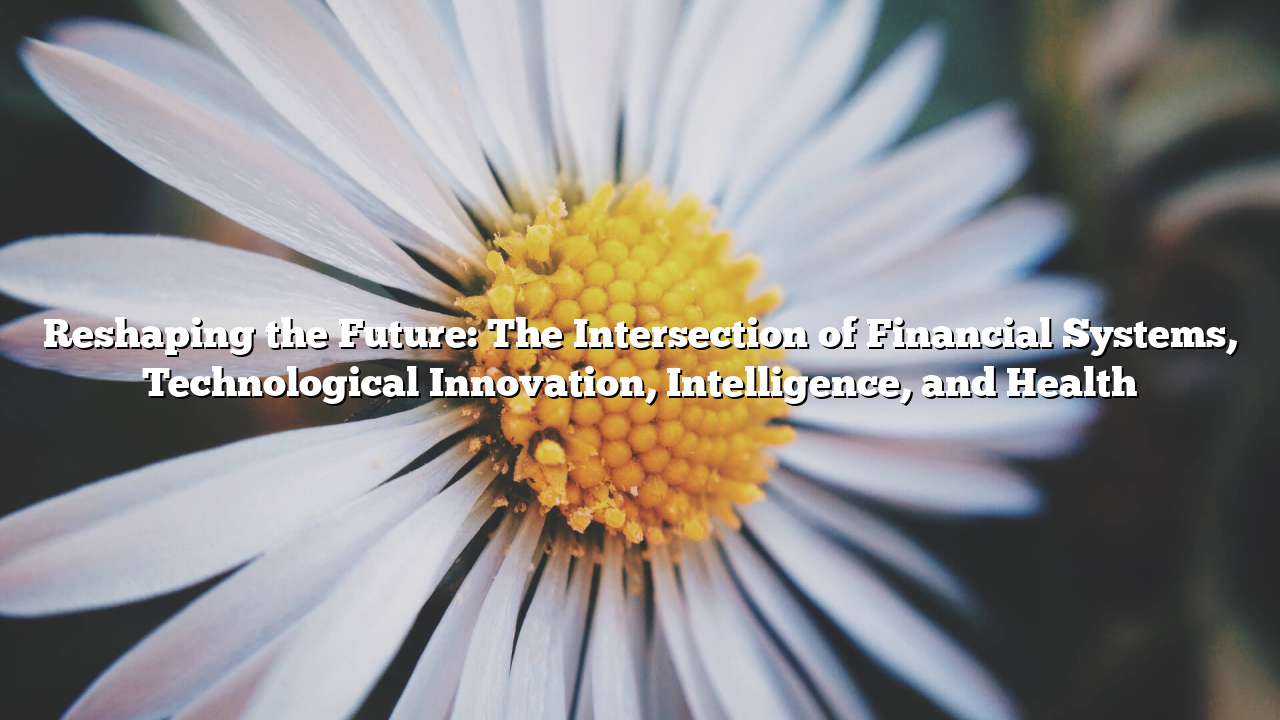
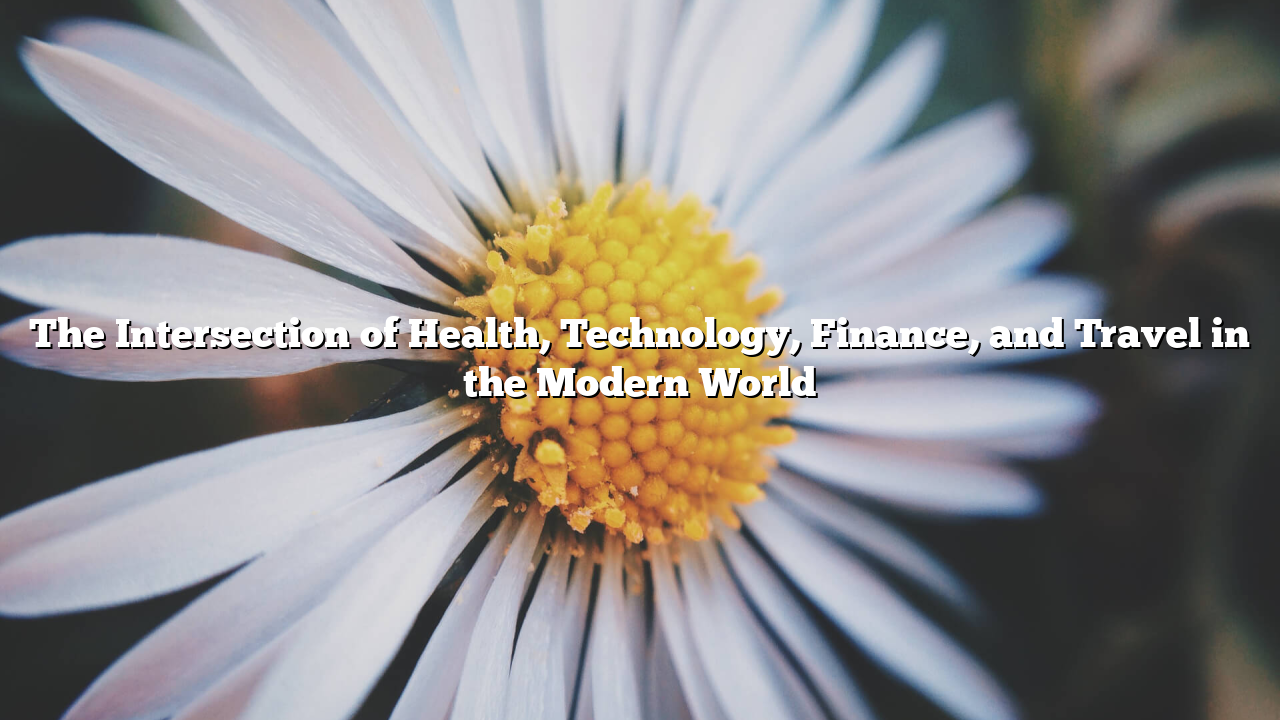
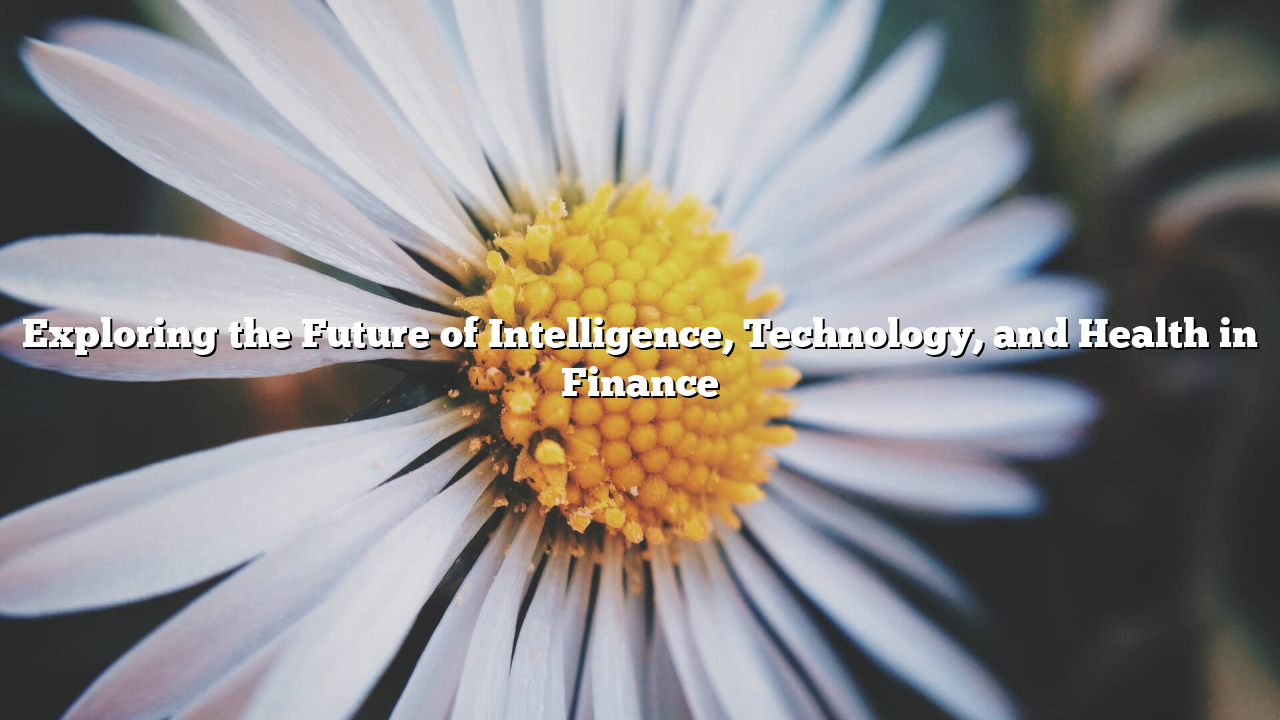
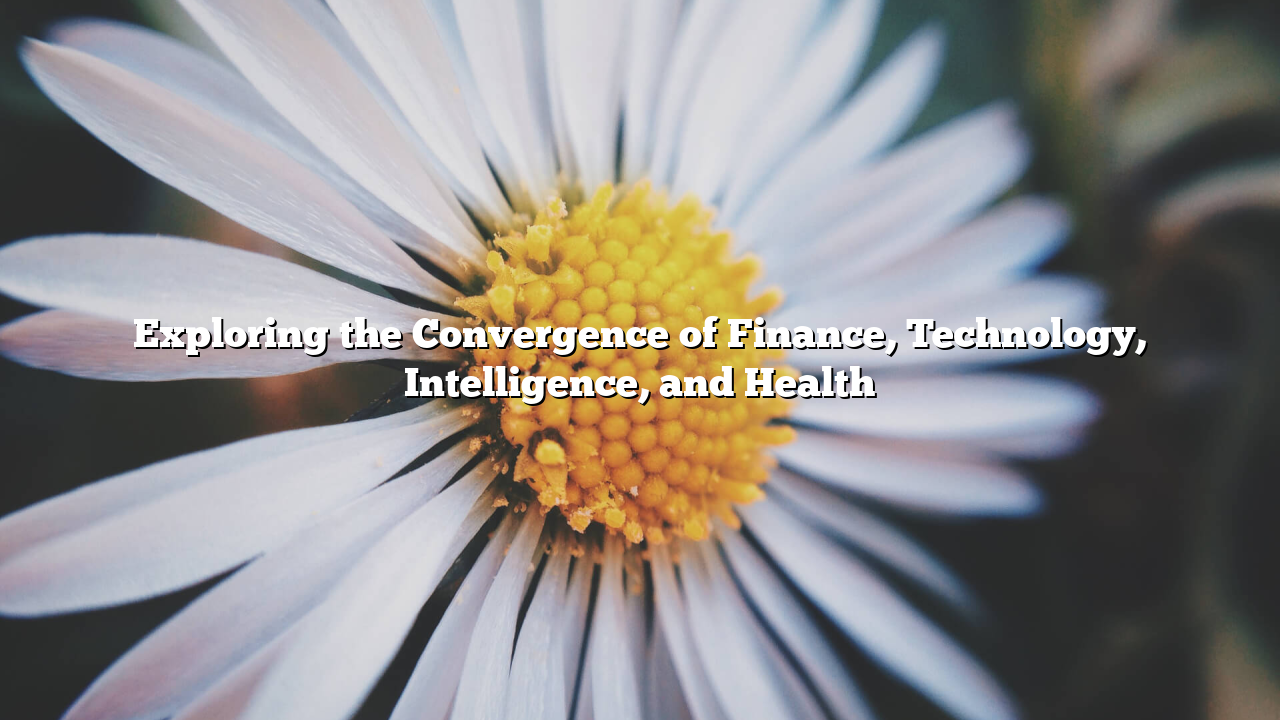
Leave a Reply